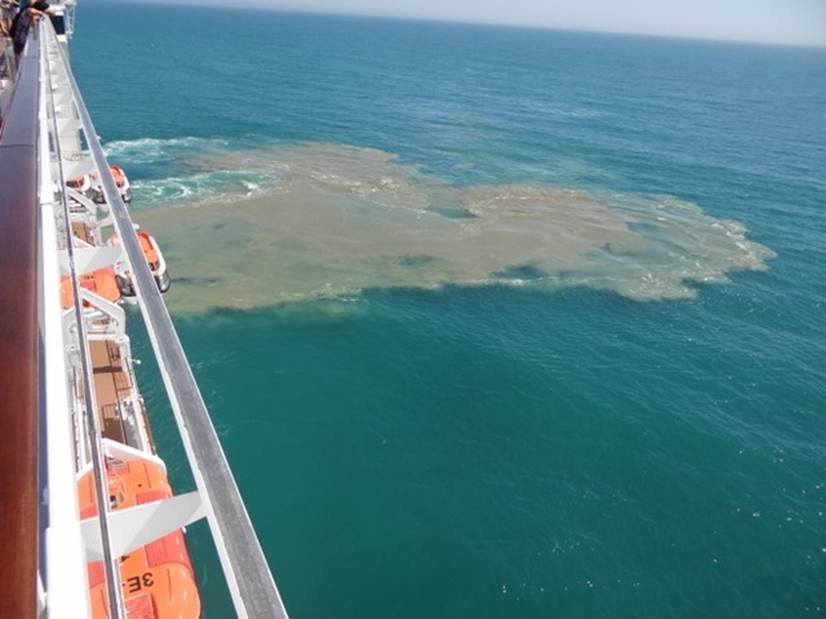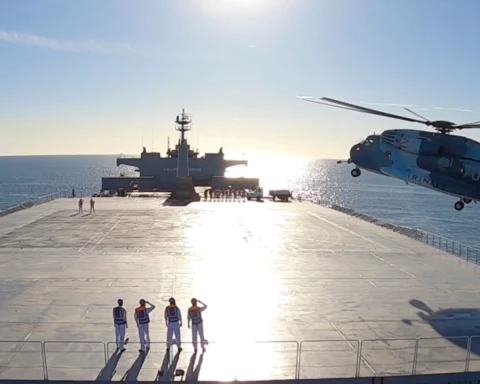Sojiro Imahashi, the president and CEO of Kanto Kosan, Tsuyoshi Ifuku, and Yuki Yamamiya, were charged with one count of conspiracy to make false claims, to commit ocean dumping, and to commit major fraud against the U.S.; four counts of major fraud against the U.S.; and six counts of submitting false claims.
“The defendants deceived the U.S. Navy by willfully failing to satisfy the company’s obligations under $120 million in contracts with the Department of Defense that were designed, among other things, to ensure the company not only delivered the required services to the Navy, but also complied with critical environmental safeguards,” said Acting Assistant Attorney General Nicholas L. McQuaid for the Justice Department’s Criminal Division. “The Criminal Division will continue its efforts to protect the integrity of military contracting and safeguard taxpayer dollars.”
“The defendants deserve to be held fully accountable for their alleged scheme to illegally dump wastewater as it threatened the integrity of the Department of the Navy procurement process, degraded the readiness of the warfighter, and squandered taxpayer dollars and valuable investigative resources,” said NCIS Far East Field Office Special Agent in Charge Tim Mahew. “NCIS remains committed to working with DCIS and our federal and international law enforcement partners to root out crime that threatens the communities where our DON personnel live and work.”
“The alleged conduct of the defendants in this case posed a threat to the critical strategic alliance between the United States and our valuable partner nation of Japan,” said Special Agent in Charge Stanley A. Newell of the Transnational Operations Field Office for the Defense Criminal Investigative Service (DCIS). “The dedicated special agents of the DCIS, along with our investigative partners of the Naval Criminal Investigative Service, will tirelessly investigate and bring to justice anyone who swindles the Department of Defense and threatens U.S. military readiness.”
According to the indictment, from approximately 2007 to 2020, Kanto Kosan received contracts from the U.S. Navy valued at approximately $120 million, tens of millions of which related to the removal, treatment, and disposal of contaminated oily wastewater (OWW) generated by U.S. Navy ships in Yokosuka, Sasebo, and Okinawa. Under the terms of the contracts, Kanto Kosan was typically required to treat the OWW in accordance with Japanese environmental regulations prior to discharging it into the ocean.
The indictment alleges that Kanto Kosan, acting through the defendants, transferred OWW to treatment barges, on which Kanto Kosan was supposed to use various methods to treat and clean the OWW prior to discharging it into the ocean. To ensure that discharged OWW met Japanese environmental standards, the U.S. Navy contracts typically required Kanto Kosan to “conduct semiannually sampling and testing of effluent discharge from the treatment barge[s]. . . in a laboratory that is certified by the Japanese regulatory authority . . . and provide copies of the test results to [the U.S. Navy]. . . within five (5) working days of receiving results from the accredited Japanese laboratory.” Compliance with the environmental testing regime set out in the contracts was one of the standards by which Kanto Kosan’s performance was measured.
The indictment alleges that in approximately 2007, the defendants and others decided that, instead of properly treating the OWW, Kanto Kosan would minimally treat OWW to remove visible contaminates and then discharge the improperly treated or untreated OWW into the ocean. To circumvent the testing regime, the defendants directed that a storage tank on Kanto Kosan’s OWW treatment barges be kept filled with tap water, and then directed personnel from the environmental testing laboratories that Kanto Kosan engaged to take samples from the tanks filled with tap water. Kanto Kosan employees also added OWW to the tanks filled with tap water on occasion to avoid exposing the scheme. As a result, the U.S. Navy was deceived into believing Kanto Kosan was properly treating the OWW, and into paying its invoices.
An indictment is merely an allegation. All defendants are presumed innocent unless and until proven guilty beyond a reasonable doubt.
NCIS and DCIS investigated the case. Trial Attorney Michael P. McCarthy of the Criminal Division’s Fraud Section is prosecuting the case.
The Fraud Section is the nation’s leading prosecuting authority for complex procurement fraud and corruption matters.



